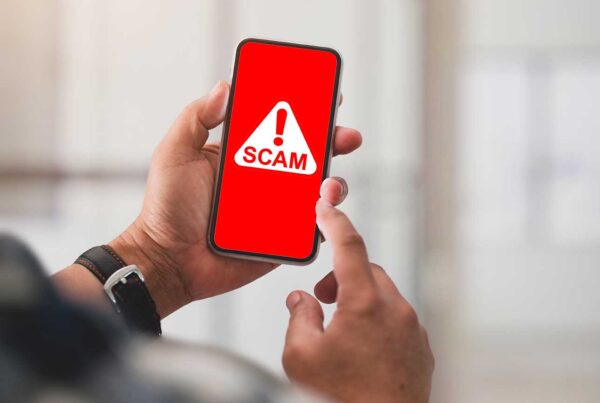You’d be hard-pressed to find anything more foundational to the human experience than love and companionship. When authentic, it is an immense source of light and joy, especially during times when life is dark and difficult.
That’s why romance scams are so malicious. Scammers certainly don’t shy away from exploiting people’s vulnerability.
That’s why we want to take some time to address romance scams. Let’s dig into typical components of romance scams so that you are better equipped to spot and avoid them.
- Most romance scams start with fake profiles on online dating sites or social media. Scammers create these by stealing photos and text from real accounts or images from the internet.
- Over a short period, the scammer/love interest builds a relationship with you, exchanging photos and romantic messages. Some will even talk to you on the phone or through a webcam. The relationship seems too good to be true or is moving too fast. But that’s love, right?
- When enough trust is built into the relationship, the scammer/love interest makes their move.
- No matter the story, the road of all romance scams leads to one particular destination. A very specific request: Send money. They inform you about a health issue they need help financing. Or a family emergency they can’t cover. Or they want to visit you if only they could afford it. Or they have an investment opportunity for you—better yet, you can go in on it together.
If at this point you hesitate, you’re not alone. The emotional attachment you feel could very well be real, but the request for money doesn’t sit well with your reasoning, logic, or gut feeling. That’s a lot of money to send. Your friends and family, your financial institution—they might point out red flags or openly object if you told them about it. More alarming yet (but under the guise of helpful), and especially if the price is exorbitant, the scammer/love interest might even help you pre-script your conversation with your financial institution so you can withdraw money without raising too many questions.
So you cave and send money. Your money is gone, and suddenly so is your love interest.
Here’s how you can protect yourself from this scam:
- Limit the amount of personal info you share on social media or elsewhere. Posting too much makes it easier for a scammer to target you.
- Do your research. Ask specific questions about details given in a profile. A scammer may stumble over remembering details or making a story fit. Many scammers steal photos from the web to use in their profiles. You can do a reverse image lookup using a website like tineye.com or images.google.com to see if the photos on a profile are stolen from somewhere else. You can also search online for a profile name, email, or phone number to see if they’ve already been red-flagged as a scam.
- Move slow. This is hard to do sometimes because life doesn’t slow down for everyone, and it kicks into an especially high gear when things are good. As best as you are able, pump the brakes on the relationship. Don’t rush in. If you want to meet this person and they are coming up with excuses to never meet, slow down even more.
- Don’t send money to someone you’ve never met in person. Never give someone your credit card information to book a ticket to visit you. Cut off contact if someone starts asking you for information like credit card, bank, or government ID numbers or for money via gift cards or cryptocurrency.
- Don’t hide the relationship. Trust your people. Be open and upfront with family and friends. Reach out to your financial institution. There are so many people on your side, so many people who genuinely have your best interests in mind. Scammers are good at isolating vulnerable people. It’s important to remember that you’re not alone.
How the Fraud Squad can help
The Fraud Squad provides education about common scams to retailers and consumers. The program helps raise awareness of common scams so they can more easily recognize the lies and avoid phone, email, social media, gift card and other scams to help them protect their financial health and wealth. Learn more about ways to safeguard your finances at fraudsquad.com. Help your friends and family stay safe against scams by sharing this post.





 Federally Insured by NCUA |
Federally Insured by NCUA |  Equal Housing Opportunity |
Equal Housing Opportunity |